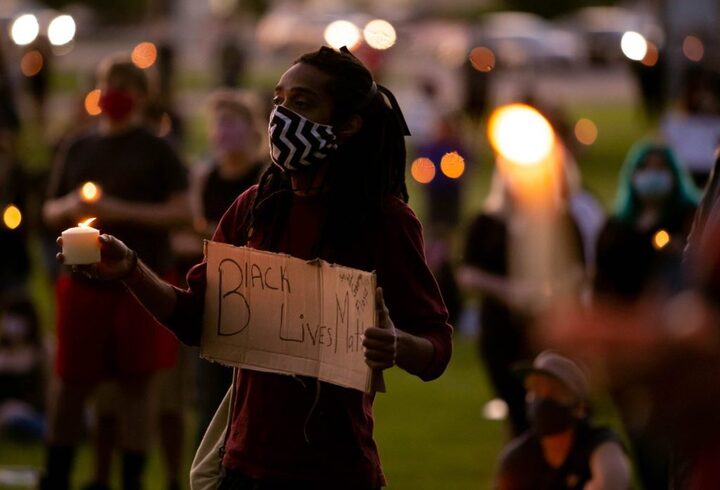Policing is an essential component of public safety, but it has become hyper-politicized and polarized to the detriment of the profession and the people it serves. If you think Black lives matter, you must think blue lives don’t, and vice versa. If you work with the police you must be a racist, and if you work to change the police you must be an anarchist. We either must hire more cops or abolish the profession. As a society, we have become entrenched in the polar extremes of politics and public opinion. None of this is conducive to meaningful change.
In the four years since the murder of George Floyd, clarion calls for change sounded from all quarters. Community members, elected officials, and police leaders themselves clamored for better, more collaborative ways to ensure public safety. Despite the apparent zeitgeist for reform, though, solutions to long-standing problems have been few and far between. To a significant extent, this is because we, as a society, lack clarity and consensus on what policing is, the strategic role that police should play in enhancing public safety, and the tactics that they should use to advance that goal. Policing in the United States is hyper-localized, divided into more than 18,000 different agencies, and has long suffered from a lack of national standards that define what fair and effective policing looks like.

There are important reasons why there are few meaningful national standards; principles of federalism limit the imposition of such standards on the states. State standards exist but vary widely and often are silent on critical issues related to public safety, equitable outcomes and effective services. Existing efforts to develop national standards, including through accreditation bodies such as CALEA are often exclusively run by law enforcement officers through opaque practices, with limited attention to social science developments about what matters and works, and little guidance on data needed to measure impact. And most attempts to define fair and effective policing, or constitutional policing, focus on what officers or agencies can’t or shouldn’t do, ignoring or devaluing the transformative potential of the profession.
The lack of collaboratively developed, evidence-based, affirmative guidance leaves police leaders, municipal officials, subject matter experts, and communities in a fractured tug-of-war, each pulling in a different direction, inconsistently and often counterproductively. This is especially frustrating given the vast majority of people want exactly the same thing: fair, effective policing that keeps all members of the public, and the officers who serve them, safe.
Policing is perhaps the most important profession for securing the democratic society in which we all desire to live. Accordingly, police could, and should, become change agents for improved safety and equity, even — no, especially — in those communities where they are viewed as a categorical threat to those principles.
The ALI Principles for policing
While we lack national standards, there is a significant reason for hope that a shared understanding of good policing is within arm’s reach.
The American Law Institute (ALI) recently convened an illustrious and non-partisan group of policing legal scholars, academic researchers, police leaders, local policymakers and community advocates over a period of seven years to dive deeply into the legal frameworks, scientific evidence, promising practices and community priorities that should be contemplated across a range of critical areas. The 14 chapters of the resulting “Principles of Law, Policing” explore issues like uses of force, stops and searches, investigative procedures, data and transparency, hiring, licensing and decertification, accountability, discipline, community engagement and serving vulnerable populations. The “Principles” provide detailed, stakeholder informed guidance about how policing can live up to its promise to protect and serve given the complicated realities of modern society.
These Principles are promising, detailed and informed… but they are also hundreds of pages long and do not necessarily include guidance for how they can be operationalized. Nor do they contemplate the strategic and practical considerations of implementing across a wide range of department missions, regions, funding levels, size, and local political contexts.
Standards & Policy: There is no shortage of “model policies” in policing. These can be a valuable tool in advancing practice, but off-the-shelf policies, in and of themselves, are of limited utility. Agencies must determine how to make the policies work in their local context, especially when full implementation is not feasible due to resource constraints, local or state regulations, or other lack of stakeholder buy-in.
Training: Many model policies require a fundamental shift in how officers approach their daily work and broader mission, but lack sufficient attention to training. To be even minimally effective, agency policies must be supported by training to ensure that changes in practice — and, more importantly, the underlying reasons for any such changes, are understood across the department. In some areas, training must be used to ensure that officers have the knowledge and skills necessary to effect change. Too often, a new policy is deemed “ineffective” when it was not the policy itself, but rather the lack of appropriate training support that doomed the new mandates.
Data and Accountability: Historically speaking, policing has not been a data driven profession. It is time for that to change. Changes to policy and training must be supported by a robust data collection and analysis that can inform agency leadership, elected officials, and the public about the extent to which policies are implemented with fidelity and whether those changes are associated with improved outcomes. These data frameworks must be developed intentionally to minimize burdens on line officers, ensure data quality and the protection of personally identifiable information, and support more rigorous empirical evaluations over time. Doing things the way that they’ve always been done, or the way a neighboring agency does them, or the way that seems intuitively beneficial simply is not enough; better information is essential.
Collaboration is Key
Just as important as the standards and policies — and the training and data frameworks that support them — is the process by which these guidelines will be developed. Any stakeholder who will be impacted by these policies or who plays a role in their adoption, from community members to line officers, should have a seat at the table in their creation.
One of the most crucial elements of this work is meaningful community partnership. While the importance of co-producing public safety alongside communities has gained traction in recent years, community perspectives rarely are integrated into the development of police strategy or tactics. Rather, “community policing” is often used to describe keeping the community informed about certain police efforts without much, if any, attempt to solicit actual feedback. When community input is sought, it is frequently solicited only at the tail end of program development, serving as a “check the box” approval of pre-determined approaches.
This is a problem. Policing is a public institution, and policing in a democracy means the public deserves a meaningful say in how they are policed. Individuals most affected by police activities have the deepest understanding of their own needs and priorities. Sincerely and proactively involving communities from the start not only fulfills policing’s democratic duty but also ensures more informed and promising approaches to achieving public safety.
There’s a reason this hasn’t yet been done. It’s hard — really, really hard. It’s nuanced and fraught and political. It requires robust multi-disciplinary partnerships, external partnerships, and community partnerships. It demands humility. It’s subject to a whole host of factors beyond the control of the stakeholders participating within it. It’s decidedly unsexy, and does not lend itself to politically advantageous soundbites. It will require significant support from a broad range of funders and stakeholders, all of whom must be comfortable with stepwise, deliberative, sometimes painstakingly slow progress.
But it’s absolutely necessary. And it may be our best shot at creating a more perfect union.
Editor’s Note: This story was first published in the summer 2024 issue of GJR.
Seth Stoughton and Maureen McGough run the Excellence in Policing and Public Safety program at the University of South Carolina Joseph F. Rice School of Law. Stoughton, a law professor, is the faculty director and McGough is executive director. They have been working for several months to develop the Goldman Collaborative, named after Roger Goldman, the Saint Louis University Law Professor who crusaded for decertification of problem officers. (A story on his life’s work is included in this magazine.) Stoughton and McGough came to St. Louis in June to discuss their ideas with Goldman friends and colleagues. St. Louis Police Chief Robert J. Tracy spoke to the group and spoke of the importance of this kind of collaborative approach. William H. Freivogel, publisher of GJR, was a close friend of Goldman’s and has assisted the Goldman Collaborative.
